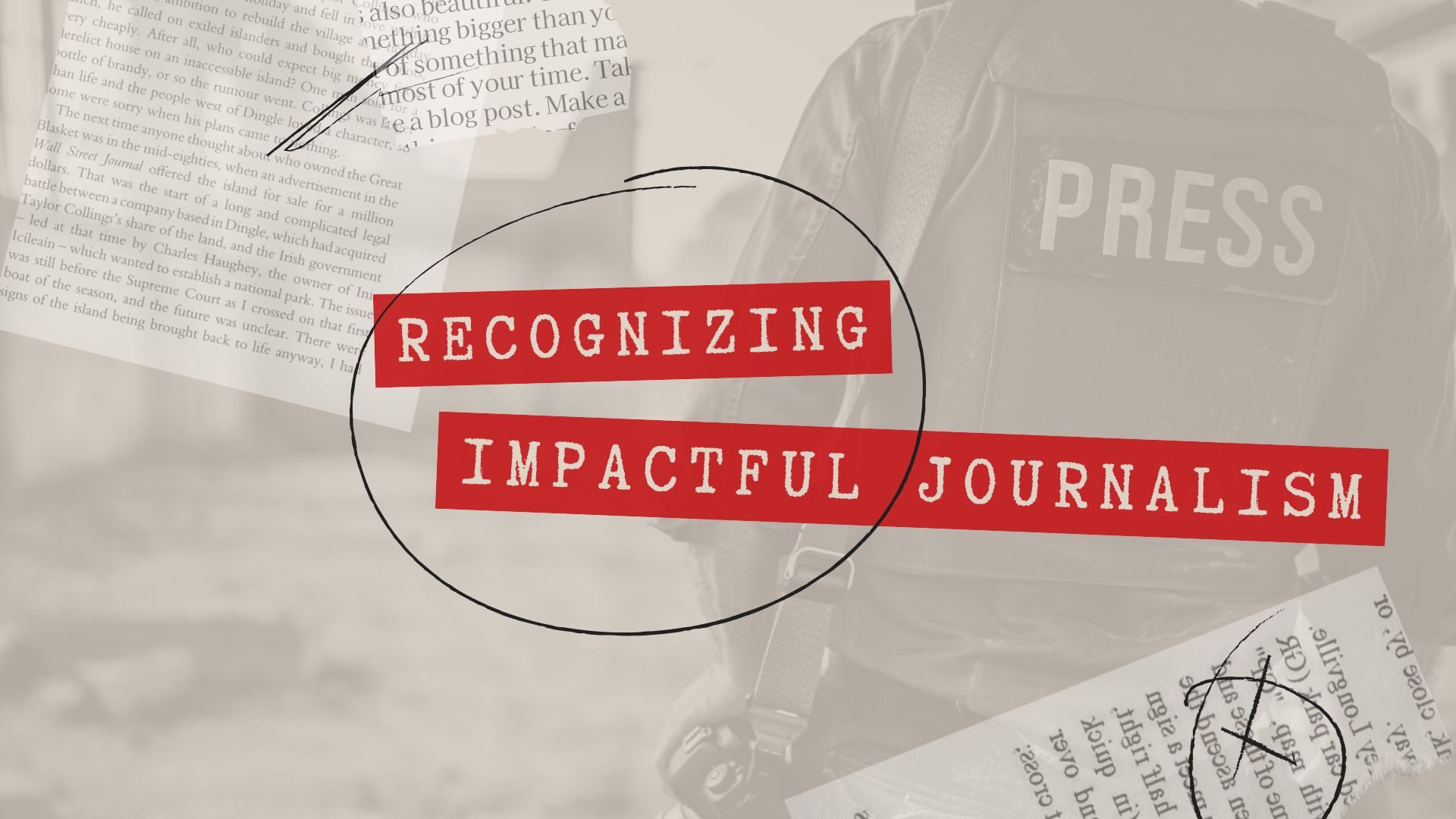
Welcome to the
Danish Siddiqui Journalism Award
The Danish Siddiqui Journalism Award celebrates journalists who embody integrity, courage, empathy, and truth. It recognizes those who push boundaries, often in challenging circumstances, to deliver impactful reporting that informs, educates, and inspires change. By honoring these storytellers, we uphold Danish Siddiqui’s legacy of fearless journalism, ensuring his commitment to excellence continues to inspire and guide future generations.
Integrity
Maintain the highest standards of journalistic ethics and uphold moral principles while reporting.
Courage
Display moral, ethical, or physical courage and determination despite facing intimidation.
Empathy
Uphold compassion and sensitivity while maintaining the highest journalism standards.
Truth
Deliver the truth and report objectively and accurately, free from bias.
Award Categories
Outstanding Contributions Across Journalism Categories.
Honors outstanding investigative, feature, or editorial writing that informs, inspires, and challenges public opinion, shaping impactful narratives through the power of print.
Photojournalism
Recognizes powerful visual storytelling, celebrating those whose images capture pivotal moments and convey impactful stories through compelling news or feature photography.
Digital
Honors innovative digital storytelling, recognizing those who engage audiences through interactive reports or immersive video content, pushing the boundaries of digital media.
Broadcast
Celebrates excellence in broadcast journalism, recognizing compelling reports and broadcasts that engage audiences and shape public understanding of important events and issues.
Things you should know
Submission Guidelines
?
- Open to Journalists: The Award is open to professional journalists, photojournalists, and video journalists working in print, digital, broadcast and media.
- Geographical Scope: Submissions are accepted from journalists working in India including Foreign Correspondents in India.
- Work Published Date: Eligible works must have been published, broadcast, or posted between January 1 and December 31 of the previous calendar year.
- Original Work: All submitted works must be original and created by the entrant(s). Works that have been plagiarized or found to be significantly derivative will be disqualified.
- Number of Entries: Each journalist can submit a maximum of two entries across all categories.
- Print Journalism:
- To be submitted in a PDF format.
- If URL is available that can be provided also.
- Photojournalism:
- Submit up to 5 high-resolution images (JPEG format, minimum 300 DPI).
- Each image must be captioned with a description, date, and location.
- Include a brief narrative (up to 300 words) explaining the context of the photos.
- Video Journalism:
- Submit a URL link to the video hosted on a public platform or via a secure download link.
- A brief synopsis (up to 300 words) must accompany the video entry.
- Digital Storytelling
- Include URLs for multimedia pieces published online, such as interactive graphics, web documentaries, or podcasts.
- Provide a brief overview (up to 300 words)
- Complete the Online Submission Form: All entries must be submitted through the official Danish Siddiqui Journalism Award website. Fill out the submission form with the required details, including personal information, a brief biography, and a high-resolution profile photo.
- Attach Required Files and Links: Upload or provide links to the work being submitted as per the format guidelines mentioned above.
- Include Supporting Documents
- A brief statement (up to 250 words) describing the motivation behind the work and its impact.
- Self-declaration that the work was produced by the entrant(s) and that all ethical standards were upheld.
- Submit by Deadline: Submit as per deadline. Late entries will not be accepted under any circumstances.
Entries will be judged based on the following criteria:
- Relevance and Impact: We are looking for work that contributes significantly to public understanding of important issues. Entries should highlight stories that have the potential to drive awareness, inspire action, or bring about meaningful change.
- Originality and Innovation We value creative storytelling approaches. Whether it’s through a fresh perspective, unique angles, or innovative use of media, entries should showcase originality in reporting and presentation.
- Research and Depth: Submissions must demonstrate thorough investigation and in-depth analysis. We expect entries to be well-researched, providing context and insight into the subject matter.
- Ethical Standards: Adherence to the highest standards of journalistic ethics is critical. We seek work that is fair, objective, and respects journalistic integrity while covering sensitive or controversial topics.
- Presentation: The overall presentation of the work is key. We are looking for submissions that are clear, cohesive, and effectively communicate the story to their audience, whether through writing, visual elements, or multimedia formats.
- Verification of Information: The Foundation reserves the right to verify the authenticity of the submitted works and supporting documents.
- Publication Rights: The Foundation reserves the right to use the submitted materials for promotional purposes, with due credit given to the authors.
- Disclosure: Entries from previous winners in the same category within the last three years are not eligible. Furthermore, if the work has been recognized in other significant awards, it may require disclosure during the submission process.
- Withdrawal: Entries can be withdrawn any time before the submission deadline by sending a mail to the Foundation. No withdrawals will be accepted after the deadline.
Selection Process
Submission Review
After submission, entries are reviewed to ensure they meet the prescribed eligibility and category criteria
Initial Screening
A panel of experts shortlists entries based on significance, originality, and ethical standards.
Jury Evaluation
Shortlisted entries are evaluated by a specialized jury for impact, storytelling, and reporting difficulty
Winner Selection
Winners are chosen through a consensus-driven process, with results announced at the awards ceremony
